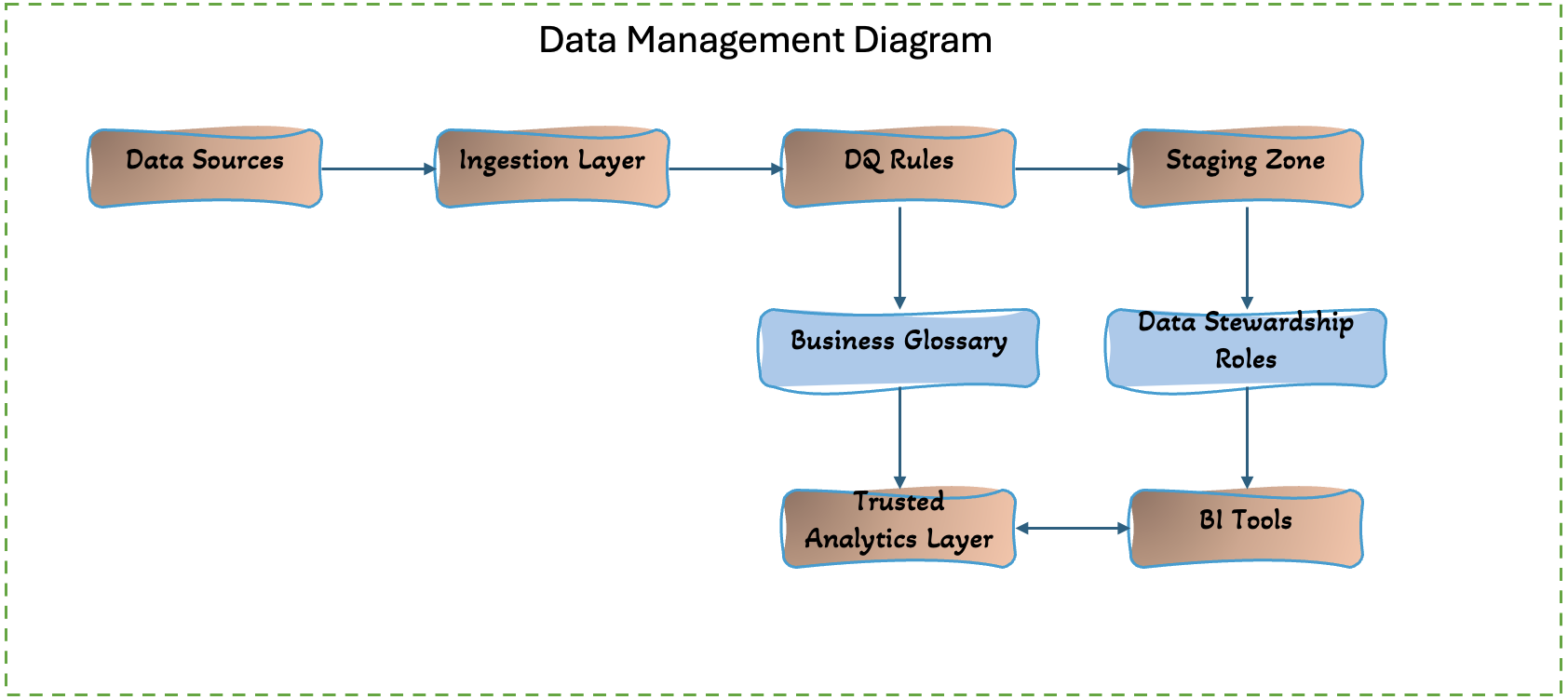Why Every Data Leader Must Care About Data Management — Not Just Storage
What Sparked This Thought
We often celebrate data as the “new oil,” but when it comes to treating it like a true enterprise asset, most teams struggle to go beyond storing and querying.
So I started asking myself:
“Are we actively managing our data — or just accumulating it and hoping for the best?”
This post is my deep dive into why Data Management should be intentional, not accidental.
My Understanding
Data Management isn’t a single activity. It’s a coordinated effort across people, tools, processes, and policies. Here’s what stood out to me:
- Data is not just an IT asset — it’s an enterprise asset.
- Left unmanaged, data decays — just like unmaintained code.
- Effective data practices can’t be bolted on later. They must be baked into your platform and product thinking from Day 0.
Real-World Use Case: Drowning in Data, Starving for Insight
A large enterprise I worked with had dozens of data sources, but analytics teams spent 70% of their time cleaning and reconciling. Dashboards were late. Trust was low.
Only after defining clear stewardship roles and building a metadata registry did the chaos start to clear.
The real “data platform” wasn’t the tech stack — it was the culture of ownership we established.
🔄 Approach
Implementing a basic but powerful data management layer:

- Business-defined rules
- Stewardship roles across key domains
- A shared glossary via Confluence
The result would be different, metrics will make sense. Dashboards stopped being debated and started driving action.
Key Takeaways
- You don’t manage data through dashboards — you manage it through frameworks.
- Treat data as a living asset that needs care, curation, and accountability.
- Great data outcomes require cross-functional alignment — business + tech.
✅ Takeaway Reflection
- 💡 You can’t scale dirty data.
- 🧭 Data Management is everyone’s job, not just IT.
- ⚙️ Your tech stack won’t save you from mismanaged data.
Questions I’m Still Thinking About
- Can every product team adopt a “data-first” design culture?
- What’s the simplest way to embed metadata and lineage into daily workflows?
- Who truly owns the quality of shared data assets?
Final Thoughts
In the digital age, every function depends on data. If you’re not managing it deliberately, you’re already behind. Next time your analytics project fails — don’t blame the tools. Ask if your data was ever managed to begin with.